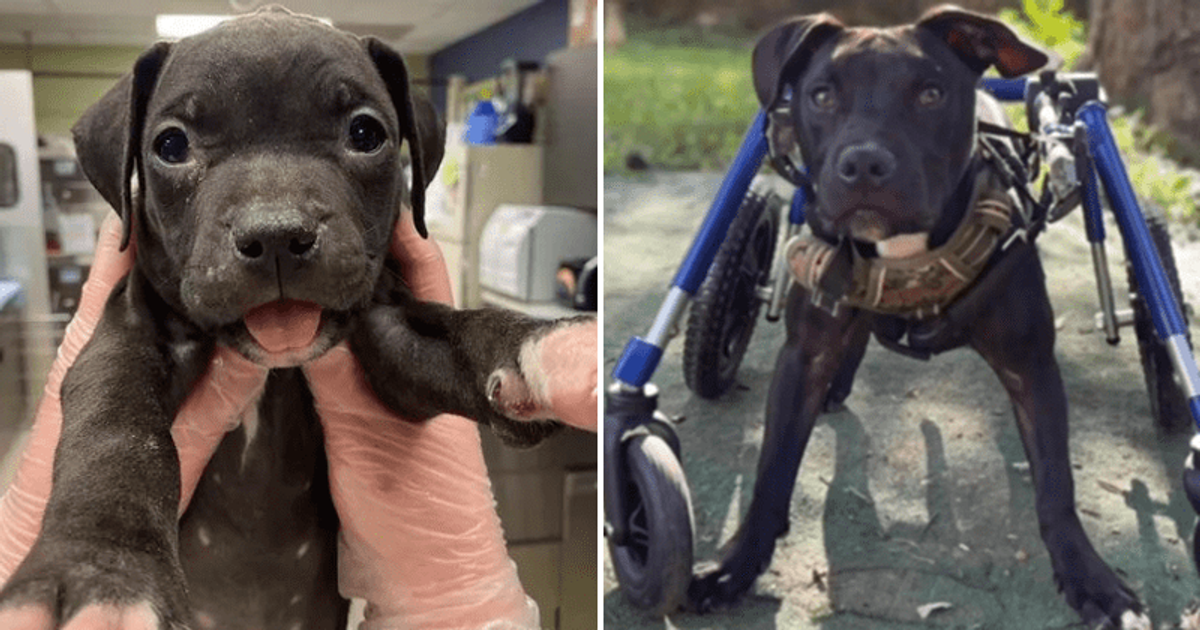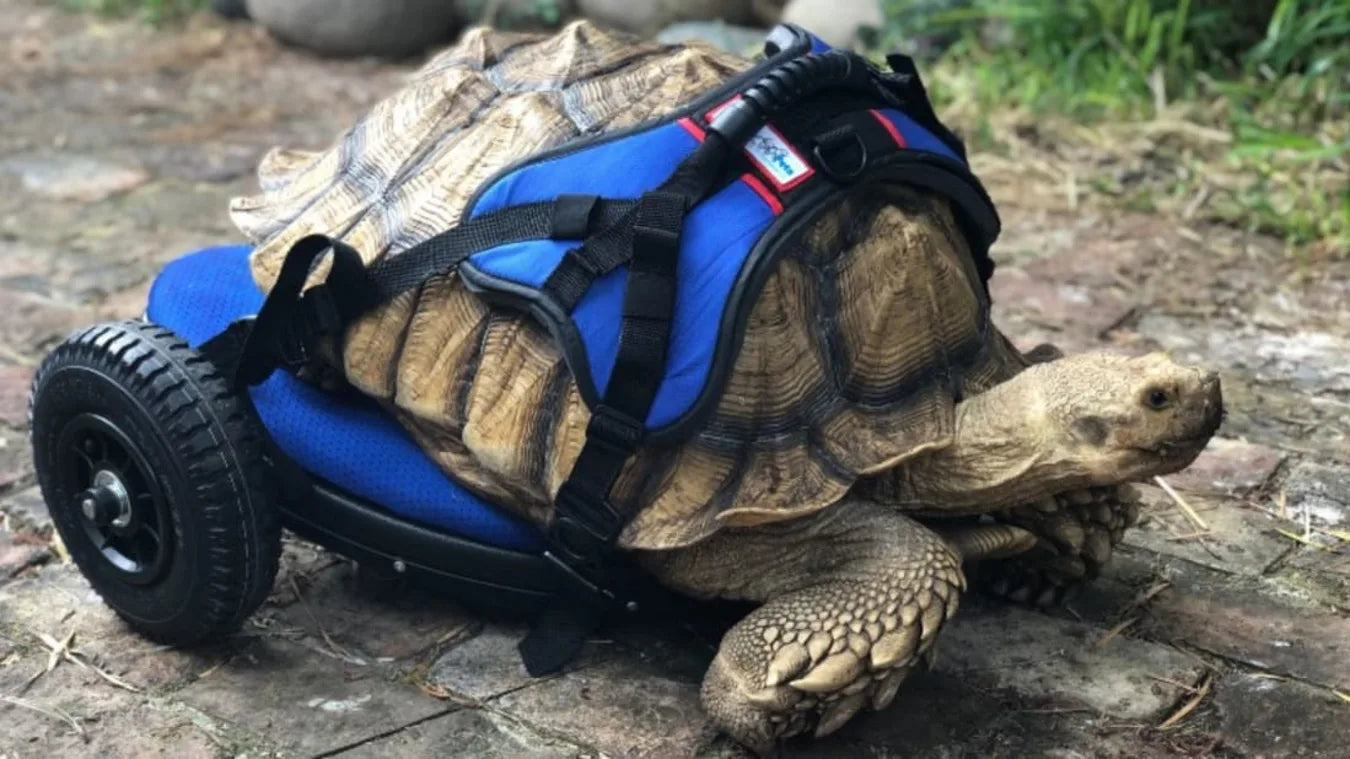Sit Down Dog Wheelchairs

Home For the Holidays: How Furry Companions Help Aging Seniors Find Comfort and Cheer All Year Long
Owning a pet might not be for everyone because of the many responsibilities that come with pet ownership. However, for seniors planning on or already aging at home, the benefits for senior pet owners and pets alike are significantly high. The steady trend of older adults successfully aging in place has shown to have positive benefits such as a sense of identity, the maintaining of familial connections, and an overall feeling of wellbeing.
On the other hand, the effects of aging on health and mobility can make it hard to maintain social connections. Especially while living alone. Limited social interaction can lead seniors down a path towards increased loneliness, decreased overall mental health, and social isolation. Luckily, evidence suggests that companion animals, such as dogs, cats, and other animals can enhance the health of their human owner. Making pet ownership and all its benefits a wonderful opportunity for aging seniors to pursue.
The Link Between Pets and a Senior’s Health
According to studies conducted by the Human Animal Bond Research Institute, the positive benefits of human-animal interaction on the mental health of older adults are substantial. For aging seniors, pet ownership provides crucial opportunities that support their social and emotional wellbeing. Owning a pet can potentially reduce stress, loneliness, and improve their overall quality of life. Older adults choosing to be pet owners have the added benefit of improved mental health, such as feeling a sense of purpose and unconditional love. Besides pet ownership, animal-assisted activities and animal-assisted therapy can help individuals with a variety of mental health issues and have become a popular service for seniors in community settings.
Senior Pets For Senior Citizens?
While the benefits of animal companionship for aging seniors are undeniable, there are always advantages and disadvantages to take into consideration before deciding whether a pet is a good addition to a home. To choose the right pet, seniors and family caregivers should do some research and discuss the following questions:
- How old is the pet?
- What does the pet need to be healthy?
- What are the costs associated with the pet’s care?
- Who’s responsible for the pet’s daily care?
- Is the pet a safety or health risk?
After evaluating the answers to these types of questions, talk to a local shelter or animal rescue to discuss adoptable animals in your community that can match a senior’s needs. Often, older pets have a lower adoption rate than younger animals. This means that you can easily find a senior pet that can match your lifestyle. Additionally, you might save it from being euthanized.
Senior Pets
Senior pets, unlike their younger counterparts, are largely overlooked as companion pets. However, that doesn’t mean that they have less to offer seniors aging in place. Very often, senior pets are great recommendations for the elderly because their demeanors are typically calmer and quieter. In addition, senior pets are more socialized to people and situations, making them less likely to react negatively to strangers or change. They’re also more of a short-term commitment than younger animals, which could be a benefit depending on a senior’s situation. As an added bonus, senior pets are more likely to be potty trained and less likely to have destructive habits like chewing furniture.
Be advised that having a senior pet can have just as many problems as younger pets. Some senior dogs can come with bad habits that make daily life a challenge, like nipping or scratching, which can sometimes be a risk for the elderly or children. Senior pet ownership means that you must be prepared to take into account the needs of a senior pet. As pets age they might need help with mobility or incontinence, or has preexisting health conditions that need attention. If a senior is limited in their mobility, a cat could be a better fit than a dog because they don’t need to be walked for exercise. However, small dogs could be an option if you don’t mind using puppy pads within the home for accidents.
Younger Pets
Puppies and kittens are fun, lovable companion animals that can be a great fit for aging seniors living at home. However, a younger pet may not be the best choice for a senior citizen. A young pet will work for a senior that lives with family or caregivers that can help with a pet’s daily needs. Puppies are incredibly active. Having a younger pet means more a lot more energy, frequent walks, and training. Although a playful pet can be a lot of fun, it can be a challenge for an older pet parent.
Of course, every situation is unique, but depending on the type and breed of pet, it’s not always clear what kind of an adult animal a younger pet could turn into.
Adapting To Everyone’s Needs
According to AARP’s 2021 Home and Community Preferences Survey, 34% of older homeowners claimed they might need to make physical changes to their house, such as modifying a bathroom or installing ramps in their homes. Of those surveyed, a quarter of them expect to include an addition to their house or plan other major renovations. But the choice to add additions to a home, plan big home improvement projects, or downsize to a new home to fit your specific needs is a highly personal one. Luckily, many of the modifications intended for a senior’s increased accessibility, mobility, and safety are also beneficial for pet owners.
Modifications For Seniors
Home upgrades and modifications for aging seniors normally focus on safety and accessibility features. Making these type of home improvements help assist with functions of daily living. Typical modifications include:
- Widening doorways
- Walk-in shower or tub
- Improved outdoor lighting
Conveniently, any of these modifications can be helpful to a pet companion, as well as their owners—especially if a pet has a physical disability.
Adapting Your Home for Pets
Like their human companions, some pets benefit from home modifications to help meet their daily needs. A pet's age, health, breed, and temperament are all reasons a furry companion could need modifications at home. Regardless of this, pet mobility loss can occur in any dog or cat.
For older or disabled pets, making adjustments around the home such as non-slip flooring or adding a ramp. These small changes are just as helpful to older adults looking for enhanced home safety features. While also ensuring both pet owner and animal have the mobility they need at home. If you're preparing a home for a handicapped pet, using a support device, like a dog wheelchair, is easier than ever. Alternatively, if a pet is experiencing age-related health issues, adding modifications like pet gates, outside fencing, and yard-related features can help a pet age happily and healthily.
When choosing a companion animal for aging seniors, consider the positive and negative benefits of pet ownership. Make a plan and take the time to research the best pet for everyone’s lifestyle and needs. Owning a pet can be one of the most meaningful and impactful ways that older adults can age happily and successfully at home. And we owe it all to our furry animal companions. For more information on the effects of animals on the elderly, go to Pets For The Elderly and find an animal shelter near you.










